Governor Robert Bentley’s many December 2015 appointments
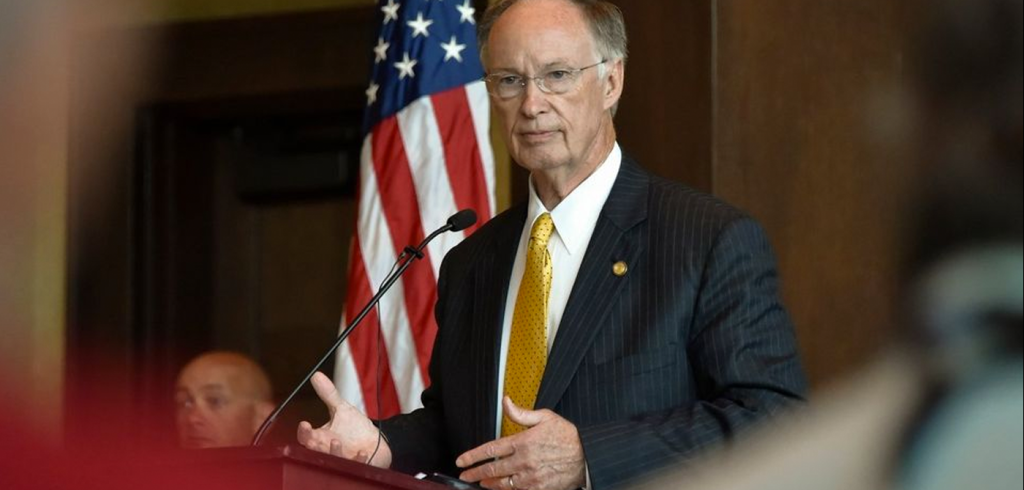
Despite the holidays, December was a busy month for the Governor’s appointments office. Gov. Robert Bentley made 39 new appointments and 8 term amendments to 28 different boards, commissions or offices last month. You can find more information on open board positions on the appointments webpage. General Contractors Licensing Board Chip Grizzle Humanities Foundation Board Trey Granger Forestry Commission Robert N. Turner Alabama State University Board of Trustees Howard L. Watkins University of North Alabama Board of Trustees Todd Ouellette TERMS AMENDED FOR THE FOLLOWING: Marty Abroms Joel Anderson Rodney Howard Libby Jordan Marcus Maples Steve Pierce Simpson Russell Will Trapp University of West Alabama Board of Trustees John Killian Onsite Wastewater Board Derrick D. Hutchins Baldwin County Board of Registrars Betty Sweet Indian Affairs Commission Lowrey Hesse Dr. Lebaron Byrd Homeland Security Task Force Dr. Joanne Hale Geographic Information Executive Council Dr. Joanne Hale Advisory Board on Broadband Dr. Joanne Hale Nursing Board Francine Mancuso Parker Valorie A. Dearmon Judith LaDonna Burns Governor’s Commission on Physical Fitness Helen Massey State Board of Public Accountancy Earl Blackmon Steve Grice Delbert Madison Historical Commission Michele Thompson Manufactured Housing Commission Winston Lindsey Dr. Walter Bracy Nancy Ballard Historic Blakeley Authority Darrelyn Bender Irene Butler Board of Examiners in Psychology Dr. Joe Ackerson U.S. Census Coordinator Larry Childers Elevator Safety Review Board Jay Weldon Jenkins Jim Wyatt Arthur W. Steber Child Abuse and Neglect Prevention Board Beth Chapman Workforce Development Board George Clark, Chair Rep. Alan Baker Board of Examiners of Assisted Living Administrators Gail C. McInnish State Council on the Arts Dora James Public Library Service Adam Thompson Onsite Wastewater Board Derrick D. Hutchens Jefferson County District Judge Shera Grant
Donald Trump’s wife remains private despite prospect of presidency
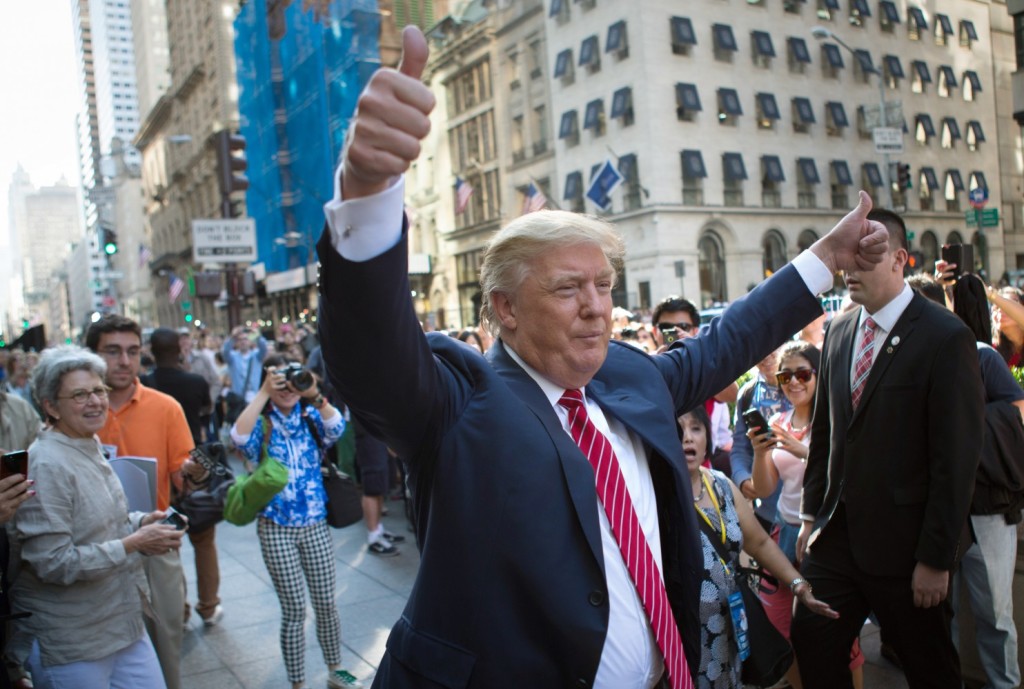
First lady Melania Trump. If that prospect evokes no clear image, that’s no accident. Donald Trump‘s wife has said little in the campaign about the type of first lady she’d like to be should her husband win the Republican nomination and the presidency. The distance, she’s said, is intentional so she can focus on the couple’s 9-year-old son, Barron. But should he become the GOP candidate for the fall, the Slovenian-born model, mother and multilingual speaker would face big decisions about her family, her life and her potential position in American history. The presidential voting starts when Iowans caucus Feb. 1. For now, Melania Trump is her husband’s top supporter at events, a striking brunette swathed in couture, frequently seen but seldom heard. Her first campaign turn came in Myrtle Beach, South Carolina, in November, as the candidate called his family on stage during a rally. Turning to Melania, his third wife, Trump asked if she’d like to say something. She stepped to the microphone and cocked a manicured thumb over an elegant shoulder. “Isn’t he the best?” Mrs. Trump, 45, asked the crowd in heavily accented English. “He will be the best president ever. We love you!” Like her husband, she is not given to understatement. As his supporters roared, Donald Trump gave her a kiss and could be heard saying: “Thank you, honey. Very nice.” It was the barest of glimpses into the life of a couple who celebrated their 11th wedding anniversary Friday. Their relationship began at least six years earlier, dating back to the 1998 party in Manhattan when the newly separated Trump asked then-model Melania Knauss, 24 years his junior, for her telephone number. She rebuffed him because he was with a date that night, she has said. By the next year, they were a couple. Trump was seeking the Reform Party nomination in the 2000 presidential election. His girlfriend was asked how she viewed herself if ever she became first lady. “I would be very traditional,” she told The New York Times. “Like Betty Ford or Jackie Kennedy.” Neither woman was all that traditional of course: Betty Ford, wife of Gerald, championed the Equal Rights Amendment. Jackie Kennedy, wife of Jack, let Americans into the first family’s life in White House through television. Now in the age of social media, would Melania Trump stay as far above the political fray as the couple’s triplex overlooking Central Park? That’s largely up to the Trumps, but they’re in no hurry to decide. Through a spokeswoman, Mrs. Trump declined an interview request from The Associated Press. A sketch of what we know: __ WHAT’S UNPRECEDENTED In many ways, Melania Trump would be a first in American history: She’d be the only first lady who is the third wife of a president, and the first to be born and raised in a communist nation, according to Carl Anthony, historian at the National First Ladies’ Library. She almost certainly has shown more skin than any other U.S. first lady — that was her in 2006, very pregnant, in a gold bikini on the steps of her husband’s private jet in Vogue magazine. WHAT’S NOT By 2016, Melania Trump has gotten married, had a child and adopted a much more traditional posture as a candidate’s spouse. She wouldn’t be the first president’s wife to be born in another country — that would be Louisa Adams, born in England. Nor would she be the first first lady to have married a divorced man — hello, Nancy Reagan. And she’d be the third first lady to have worked as a professional model, after Pat Nixon and Betty Ford. MELANIA’S ROLE Experts on first ladies said Melania Trump is being smart by laying low now, especially if she is not comfortable talking about politics and policy. But eventually, they said, she’d be wise to build on what she knows. Melania Trump studied design and architecture at the University of Ljubljana in Slovenia — so perhaps advocating for historical preservation would suit her. Maybe she’d expand her charity work. Even her model-perfect poise and ability to speak multiple languages could be an asset to her English-only husband during state dinners and other White House social events. “It’s best when they draw from their experience, and marry that up with the overall focus of their husbands’ administration,” said Anita McBride , who was chief of staff to first lady Laura Bush. Anthony said: “I think she is a great emotional support to him or a ballast for him.” DELEGATING DUTIES Donald Trump has signaled that his daughter, Ivanka, might be unusually prominent for a president’s daughter. He volunteers Ivanka’s name when asked whose advice he values. It was she, not Melania, who introduced her father when he announced his campaign. During breaks in Republican debates, it was Ivanka, one of Donald Trump’s five children, with whom he huddled. NOT ARM CANDY For all of her public discretion, Melania Trump has been consistently public about one thing: She’s more than an accessory. “I have my own mind,” she told Harper’s Bazaar in an interview published this month. “I am my own person, and I think my husband likes that about me.” Note to Washington power snobs: Don’t expect Melania Trump to put up with condescension. On a visit to the Trump triplex above Manhattan, one of the contestants on his show, “The Apprentice,” says to Melania: “You’re very, very lucky.” “Thank you,” Melania, holding a glass of champagne, says with a glittering smile. “And he’s not lucky?” Republished with permission of the Associated Press.
Marco Rubio’s Iowa crisscross approach bends caucus campaign norm
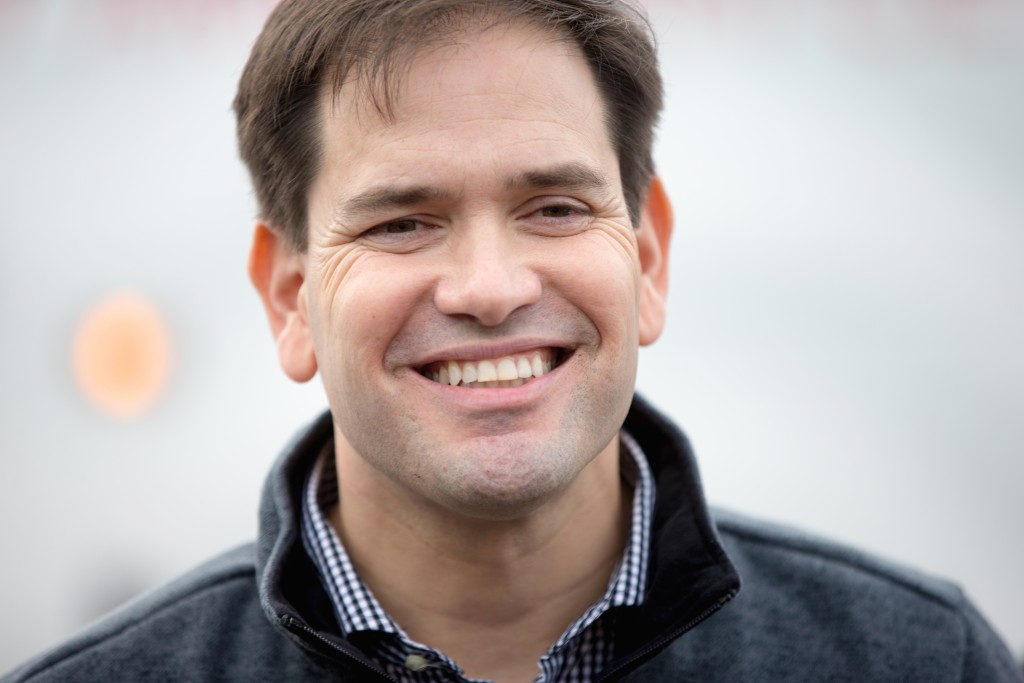
Marco Rubio is all over the map in Iowa. Quite literally. Having spent little time in the state’s rural Christian conservative northwest, the Republican presidential candidate dropped in to Sioux County for the first time last week, then bounced across the state two days later to speak with some of Iowa’s more fiscally conservative voters in the east. “I’m going to trust that he knows what he’s doing,” state Rep. John Wills, who supports Rubio, said after his campaign stop at the Christian Dordt College in GOP-rich Sioux Center. “I hope he gets the chance to get up here again. Northwest Iowa is where you win.” Rubio began an uninterrupted nine-day run Saturday ahead of Iowa’s lead-off caucuses next Monday. His itinerary includes college towns, larger cities and rural outposts. After months of promising that his campaign was on the verge of ramping up in early-voting states, Rubio appears to be following through in the Iowa homestretch. He dismisses the notion that he’s changing in the 11th hour to play catch-up with rival Ted Cruz, who has dedicated significant time and resources toward campaigning across the state. Rubio has focused more on Des Moines and the state’s other urban areas. Rather, “it’s an indication that the caucuses are eight days away,” Rubio said Saturday during a campaign stop in Indianola. In the chess game of early voting, Rubio needs to finish in Iowa ahead of mainstream GOP rivals like former Florida Gov. Jeb Bush and New Jersey Gov. Chris Christie. If he does, undecided voters in the upcoming contests in New Hampshire and South Carolina could take notice. Despite the scattershot appearance of Rubio’s schedule, a pattern of building toward caucus day was beginning to take shape over the weekend as he drew large, diverse and engaged crowds, picked up endorsements from some of Iowa’s larger newspapers and appeared Monday with the state’s freshman U.S. senator, Republican Joni Ernst. “He knows what it is to keep our country safe from the threats that are out there,” Ernst, an Iraq War veteran, said of her 44-year-old Senate colleague. She called him “near and dear to my heart.” Ernst’s glowing introduction echoed formal endorsements of younger, Republicans elected to Congress in the past decade. Rubio described as “young, strong conservative leaders,” those who have campaigned with him, including Colorado Sen. Cory Gardner, South Carolina Rep. Trey Gowdy and South Dakota Rep. Kristi Noem. “I feel good where that is going to lead,” Rubio said of his campaign on Monday. “As soon as we’re done here, we’re going to head to New Hampshire and do as well as we can there.” Until now, some Iowa GOP officials — among them, people who are backing Rubio or are remaining neutral — have been perplexed by his Iowa approach. The caucuses are far different from primary elections, and require successful campaigns to identify individual supporters, stay in touch and communicate with them about how they can be involved and ultimately attend their local precinct meetings. “The critique or allegation has been that (Rubio’s campaign is) not building an organization,” said John Stineman, an Iowa Republican consultant who is not affiliated with any campaign. “He’s not spent as much time in western or northwest Iowa as a traditional Iowa campaign,” said Gwen Ecklund, Crawford County GOP chairwoman. Instead, Rubio has frequently visited Sioux City, the metro hub of northwest Iowa, but a far cry from the socially conservative counties that surround it where the more clearly evangelical candidate Rick Santorum won in the 2012 caucuses. Cruz, who has led in some recent Iowa GOP polls, has visited them all, evidenced by red signs, reading “Choose Cruz” that mark the snowy banks along the two-lane farm roads of Sioux County. Still, Rubio drew 600 to his event at the Dordt College union on a recent, bitterly cold night. He had drawn a smaller audience to the Christian college two weeks earlier, when students were away for winter break. Two days after his Sioux County event, Rubio was 370 miles east, speaking to about 500 on a Monday night in Bettendorf, part of the more moderate Quad Cities metro area, where 2012 GOP nominee Mitt Romney won during the 2012 caucuses. In the days ahead, Rubio has an equally demanding schedule, beginning Monday in the Des Moines area with little letup, except for Thursday’s GOP debate in that city. Stineman said activities behind the scenes could fill any gaps. Much of Rubio’s voter identification has been digital — through social media and email. “It’s happening in a way we’re not used to,” said former state GOP Chairman Matt Strawn, who is not working for a campaign. Rubio is also getting organizational help from an unconventional source. Conservative Solutions, the super PAC that supports Rubio, is calling potential Rubio supporters, collecting information about them and directing them to the Iowa Republican Party’s website to find their caucus locations. Stineman said he had received such calls and follow-up information. While a spokesman for the group said it was conducting some organizational functions aimed at benefiting Rubio in the caucuses, he declined to elaborate. It’s a new role for these groups, which can, unlike federally regulated campaigns, take unlimited contributions but have until now largely used their money on advertisements. “Rubio’s team seems to be operating off of a new Iowa Caucus playbook,” Strawn said. Republished with permission of the Associated Press.
Legislature to revisit Grandparent Visitation Act (again) following court ruling

Last week, the Alabama Supreme Court denied a request from Attorney General Luther Strange to reexamine the constitutionality of the Alabama Grandparent Visitation Act, which allowed grandparents to seek visitation rights to their grandchildren. The bill was ruled unconstitutional because it violates a parent’s right to decide whom is allowed access to a child. A bill pre-filed in the Alabama Senate seeks to address those issues found to be unconstitutional. Sen. Gerald Allen (R-Tuscaloosa) filed Senate Bill 55 (SB55) to amend the Grandparent Visitation Act, specifically requiring grandparents to prove that the grandparent has an existing relationship with the child and that visitation is in the best interest of the child. The bill further establishes the factors that prove a “significant and viable relationship” and the criteria and procedure for filing a petition Among the criteria for proving a strong relationship to the child, grandparents must provide “any of the following”: Proof that the child resided with the grandparent for at least six months without a parent present Proof that the grandparent had “frequent or regular contact,” that resulted in a “strong and meaningful relationship,” with the child for at 12 months Among the criteria for proving that visitation with a grandparent is in the best interest of the child, grandparents must prove the following: The grandparent has “the capacity to give the child love, affection, and guidance” The grandparent is willing to cooperate with the child’s parent(s) if visitation is allowed The lack of a relationship with the grandparent is likely to cause harm to the child Follow Alabama Today for updates with this story.
Jim Zeigler may give conservative rebuttal to State of the State address
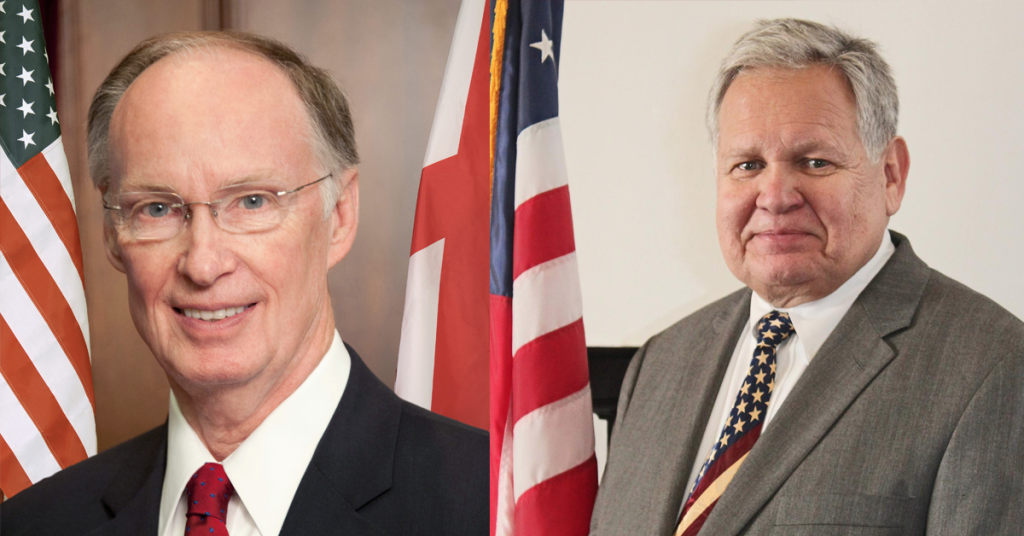
State Auditor Jim Zeigler announced over the weekend two “taxpaying anti-establishment conservative” groups have asked him to give an unorthodox response to Gov. Robert Bentley‘s State of the State address next week. The annual gubernatorial address to the Legislature, set for next Tuesday, Feb. 2 on Groundhog Day. The State of the State is traditionally followed by a “rebuttal” from leaders of the opposing political party. Senate Democratic Leader Quinton Ross and House Democratic Leader Craig Ford are set to give responses on behalf of the minorities in both chambers. But Zeigler says two right-leaning groups, Alabama Tea Party Conservative Coalition and the Common Sense Campaign, have requested an additional response. Both groups are represented by spokesman Dr. Lou Campomenosi, who said Alabamians deserve to hear from an anti-establishment Republican as well as from the party’s standard bearer, Bentley. Despite coming out aggressively against the federal government on Syrian refugee relocation, health care, and other sundry issues, Bentley has been attacked by many conservatives throughout the state as insufficiently conservative. Campomenosi, a former candidate for Baldwin County School Board among other offices, is among the most outspoken of Bentley’s intra-party critics. Zeigler, for his part, has also been vociferous in his disapproval of the governor. Most recently Zeigler targeted Bentley for allegedly spending a portion of a settlement the state received after the 2011 BP oil spill on renovating an official residence in Gulf Shores for personal reasons. Zeigler said Sunday he will review the requests to give a State of the State counter-rebuttal and decide whether or not to deliver it by Wednesday. Bentley recently told AL.com he will not offer any plans to increase taxes or close loopholes in his speech next week, a subject that has rankled many of his GOP peers despite a substantial budget hole facing state government in Montgomery in recent years. “I have three years left in my administration and I have some major things that I want to get accomplished over the next three years, and I’m going to be pushing those things, and I think the people of Alabama, when they hear them in our State of the State, they’re going to be excited about what we’re trying to do,” said Bentley.
Marco Rubio attacks Hillary Clinton, not GOP rivals, in Iowa
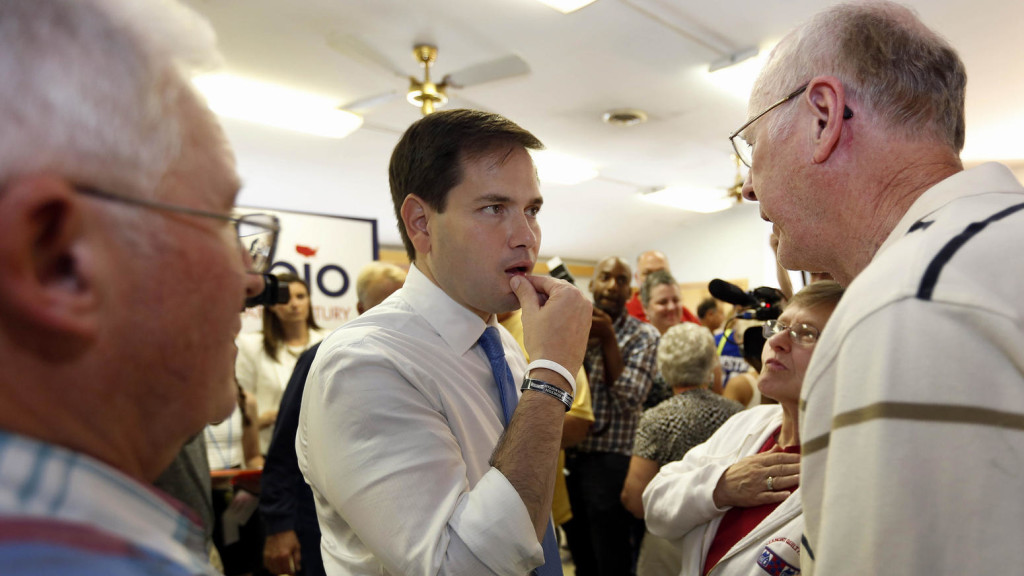
Republican presidential candidate Marco Rubio sprinted toward the Iowa caucuses Sunday, avoiding direct confrontations with his opponents and instead, projecting a vision that looks more toward the general election. The Florida senator was in Cedar Rapids and Waterloo, part of a nine-day blitz across the state, campaigning with confidence to audiences numbering in the hundreds, as preference polls showed Texas Sen. Ted Cruz and billionaire businessman Donald Trump ahead in Iowa. Iowans will vote in the country’s leadoff contest on Feb. 1. “We are not just picking a political party,” he told 400 people in a Cedar Rapids hotel ballroom. “We are picking the very identity of our nation. That is what’s at stake in this election.” Campaigning in eastern Iowa, Rubio touted a scheduled joint appearance with Iowa’s popular Republican freshman Sen. Joni Ernst Monday. Ernst, elected in 2014, is among several younger, newer members of Congress joining Rubio on the road — though Ernst says she will not endorse anyone before the caucuses. It’s part of 44-year old Rubio’s effort to cast himself as part of a new generation of conservative Republicans, while characterizing Democratic front-runner Hillary Clinton as an embodiment of a longstanding partisan gridlock in Washington. In recent weeks, Rubio has campaigned with newer members of Congress, who, like Rubio, were elected during the conservative Tea Party wave of 2010, like South Carolina Rep. Trey Gowdy, as well as Colorado Sen. Cory Gardner and South Dakota Rep. Kristi Noem. Rubio has stepped up his Iowa campaigning in recent weeks, positioning himself as the alternative to anti-establishment candidates Cruz and Trump. The Des Moines Register and Sioux City Journal, two of Iowa’s largest newspapers, endorsed the Florida senator on Saturday. And while Trump and Cruz intensified their attacks against one another in Iowa this weekend, Rubio took only light jabs at his rivals. Rubio pointed to candidates who voted to approve a reduction in federal military spending, accusations directed at fellow Sens. Cruz and Rand Paul — though he never mentioned them by name. “Our next president should tell you as a candidate how they will fight the war on terror,” Rubio said. Republished with permission of the Associated Press.
Poll: Donald Trump pulls ahead in Iowa, maintains top spot in New Hampshire

Donald Trump is gaining ground in Iowa, a new Fox News poll found. With one week before the Iowa caucuses, Trump leads Ted Cruz, 34 percent to 23 percent. The most recent poll showed Marco Rubio was in third at 12 percent, followed by Ben Carson at 7 percent. Rand Paul, the poll found, was polling at 6 percent in Iowa. The poll found 20 percent of likely Republican caucusgoers said they would refuse to vote for Trump if he was the Republican nominee; 14 percent said they would refuse to vote for Jeb Bush if he was the nominee. The Fox News poll was conducted Jan. 18 through Jan. 21. The results show a shift in opinions from earlier Fox News surveys, which found Cruz was leading the pack in Iowa. The Iowa caucuses are Feb. 1 Trump still dominates in New Hampshire, found a Fox News poll conducted during the same time period. That survey shows Trump leads Cruz, 31 percent to 14 percent. Rubio is in third at 13 percent, John Kasich follows at 9 percent. Bush and Chris Christie are tied at 7 percent. The New Hampshire primary is Feb. 9.


